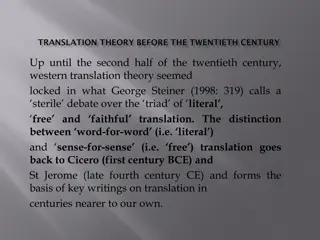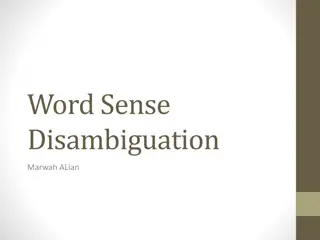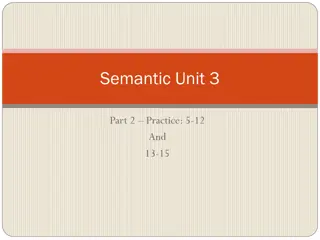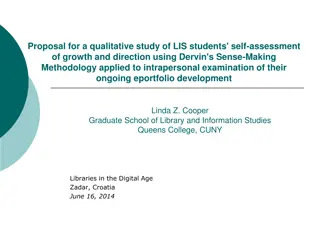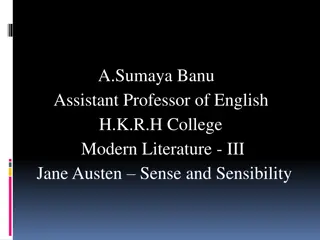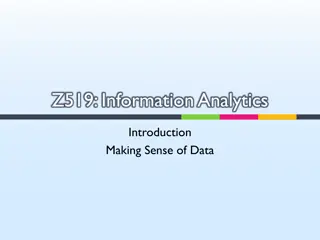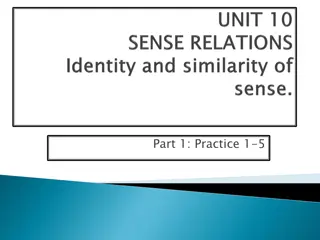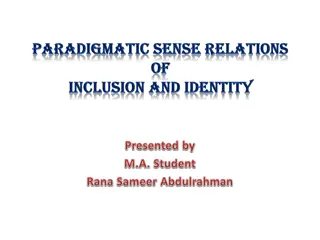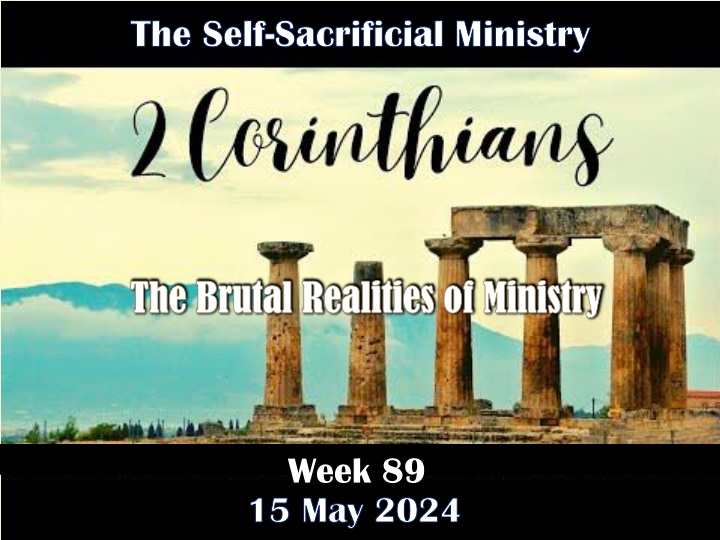
Principles of Giving in 2 Corinthians
Explore the significance of financial commitment and sacrificial giving in the context of ministry as discussed in the book of 2 Corinthians, focusing on the challenges faced by the church in Jerusalem.
Download Presentation

Please find below an Image/Link to download the presentation.
The content on the website is provided AS IS for your information and personal use only. It may not be sold, licensed, or shared on other websites without obtaining consent from the author. If you encounter any issues during the download, it is possible that the publisher has removed the file from their server.
You are allowed to download the files provided on this website for personal or commercial use, subject to the condition that they are used lawfully. All files are the property of their respective owners.
The content on the website is provided AS IS for your information and personal use only. It may not be sold, licensed, or shared on other websites without obtaining consent from the author.
E N D
Presentation Transcript
The Self The Self- -Sacrificial Ministry Sacrificial Ministry The Brutal Realities of Ministry The Brutal Realities of Ministry Week 89 15 May 2024
2 CORINTHIANS INTRODUCTION In our continuing study of Second Corinthians, the themes of this letter revolves around both the theological concepts and the practical aspects of Christian living. The primary issue at Corinth was the recognition of authentic ministry and submission to apostolic authority. Paul s intent was to provide guidance and encouragement as the church navigates the challenges that continue to influence their unity, discipline, and spiritual growth. Our study tonight begins a newsection: The Self-Sacrificial Ministry (8:1-9:15). In this section, Paul discusses the principles of giving, and emphasizes the need for believers to be cheerful givers who sacrificially give our resources financial, and otherwise for the work of ministry.
2 CORINTHIANS INTRODUCTION Paul had already addressed TheCrucial Concerns of Ministry (1:1-3:18), described the purpose of The Ministry of Reconciliation (4:1-5:21)and painted The Realistic Portrait of Ministry (6:1-7:16). Now, Paul turns to discussing money s relationship to the ministry, and the importance of believers having a proper understanding of finances and giving. In 8:1-15, Paul reminds the Corinthians of their financial commitment to the suffering church in Jerusalem, and calls them to fulfill their intention. In 9:1-15, in his discussion on handling money biblically and wisely, Paul outlines the overarching principles of giving applicable to believers today.
2 CORINTHIANS - LESSON OVERVIEW Swindoll . . . opens our study by reminding us of the financial challenges facing the church in Jerusalem. He says . . . the church in Jerusalem was in serious trouble, its very existence was in doubt. The Jewish church in Jerusalem had now been existence for more than two decades. The Jewish believers in that church had been increasingly ostracized, persecuted, arrested, tried, and shunned. Some were even boycotted, exiled, and executed. Their own countrymen, family members, and friends had turned against them. The prophecy Jesus spoke before His death and resurrection was coming to pass before their very eyes:
2 CORINTHIANS - LESSON OVERVIEW Do not think that I came to bring peace on earth; I did not come to bring peace, but a sword. For I came to set a man against his father, and a daughter against her mother, and a daughter-in-law against her mother-in-law; and a man s enemies will be members of his household (Matt. 10:34-36). In Jerusalem and Judea, most of the same Jewish authorities and institutions that had sent Jesus to the cross still held power. To be a follower of Jesus under that regime had move from uncomfortable to excruciating. As a result of the persecution, many Jewish Christians had no work. Who would hire or purchase goods from a heretic Christian? Without work, they had no money. Without money, they had no food.
2 CORINTHIANS - LESSON OVERVIEW Considering the Jerusalem church had prospered in its early years, they had reached the brink of financial ruin. The Jerusalem church was hurting, and it broke Paul s heart to think that the church where it all began could be facing its end. God gave Paul a thought that: As you travel these areas, take up a collection for the needs of the church in Jerusalem. Having mentioned this collection for the saints of Jerusalem in 1Cor. 16:1, here in 2Cor. 8, as Paul approaches Corinth returns to this issue of the collection. Given his bumpy relationship with the Corinthian church, Paul was understandably concerned about whether they would be willing to fulfill their financial commitment to the Lord.
2 CORINTHIANS - LESSON OVERVIEW He sensed their enthusiasm for the project had wane. Since they had been cut off from the apostles and temporarily severed from other Christian churches. Because of the internal strife and the influence of the false teachers, the Corinthians attention had been drawn inward. As a result they had lost their outward focus. To help renew their faithfulness and encourage their outward vision, Paul sets before them two examples of self- sacrificial giving: The Macedonians (8:1-5). Jesus Christ (8:9). Exhortation to the Corinthians (8:6-8).
2 CORINTHIANS 8:1-5 1Moreover, brethren, we make known to you the grace of God bestowed on the churches of Macedonia:2that in a great trial of affliction the abundance of their joy and their deep poverty abounded in the riches of their liberality.3For I bear witness that according to their ability, yes, and beyond their ability, willing,4imploring us with much urgency that we would receive the gift and the fellowship of the ministering to the saints. 5And not only as we had hoped, but they first gave themselves to the Lord, and then to us by the will of God. they were freely
2 CORINTHIANS 8:1-5 Paul begins his example of self-sacrificial giving by addressing the Corinthians as brethren, fellow Christians. giving is a ministry of believers. God does not ask pagans to support His work; it is the responsibility of the family of God. While this may seem insignificant, in fact, the ministry of as brethren who are to live as members of an extended family with bonds that extend beyond their local church. Therefore, Paul initially reminds the them of their status circumstances in Corinth to the financially destitute churches in Macedonia, likely the churches in Philippi, Thessalonica, and Berea (Acts 16:11-17:13). Then Paul draws attention away from their own affluent
2 CORINTHIANS 8:1-5 His purpose, was to show that even in the midst of their deep poverty, those churches overflowed in their generosity (8:1-2). Naturally, we would assume that an outpouring of charitable giving would come from wealthy churches that could afford a generous philanthropic gesture. However, here Paul uses a common Jewish argument, called in Hebrew a qal wahomer. We call it from the lesser to the greater argument. Paul s point is, if the poor churches of Macedonian can give above and beyond their means to fulfill their financial commitment, how much more should the affluent church in Corinth be able to fulfill theirs.
2 CORINTHIANS 8:1-5 We are not given details of the Macedonians financial plight, but historical records confirm that poverty in general was a way of life in Macedonia. In addition to this general economic malaise, the Macedonian Christians had recently been subjected to considerable persecution which had test their faith. Nevertheless, in the midst of their own poverty and affliction, they gave their financial contributions with an abundance of joy (8:2). Now, Paul adds another dimension to their giving. They gave voluntarily of their own accord (8:3).
2 CORINTHIANS 8:1-5 The Greek word for accord, autha retos is only used here and in 8:17. It comes from two word self and choice it refers to a purely voluntary, free-will decision to commit to a particular course of action. Swindoll says . . . the Macedonians gave spontaneously, with no prompting or pressure. No compulsion. No guilt trips. Paul say, they even pleaded (begging) Paul and Titus to take their money (8:4). What prompted this kind of enthusiasm to meet the needs of people they had never met, when it likely meant self-sacrifice? Simple: They saw this as a ministry opportunity, the favor of participation (8:4).
2 CORINTHIANS 8:1-5 The word favor in Greek actually means grace. So, the Macedonians didn t see helping needy believers as a hardship, but as a grace-based privilege. Because they had received the unmerited grace of God, this attitude of grace overflowed toward others, manifesting in a commitment to give graciously even when it hurt. Because they had first given themselves to the Lord, the decision to give sacrificially to the support of the suffering believers in Jerusalem came easily (8:5). When we give ourselves without reluctance or reservation to the Lord, then the giving of our time, talents, or treasures comes naturally.
2 CORINTHIANS 8:1-5 We do not have to be convinced, manipulated, or coerced. We give freely with an open heart and an open hand. On the other hand, when we find ourselves tightfisted and unwilling to give freely, the problem runs deeper than the balance in our checking account or our cash flow. The problem of selfishness is not financial, but spiritual.
2 CORINTHIANS 8:6-8 6So we urged Titus, that as he had begun, so he would also complete this grace in you as well. 7But as you abound in everything in faith, in speech, in knowledge, in all diligence, and in your love for us see that you abound in this grace also. 8I speak not by commandment, but I am testing the sincerity of your love by the diligence of others.
2 CORINTHIANS 8:6-8 Now, in light of the startling example of the Macedonians churches generosity, Paul turns to the Corinthians. Unlike the Macedonians, who were being crushed under the weight of persecution and economic distress, the Corinthians flourished in financial freedom. They had the ability to complete the work they had started earlier. The question at hand was not ability, but willingness. Would they, like the Macedonians, fulfill the promise they had made and complete . . . this gracious work as well (8:6). Because the Corinthian had made a pledge to participate (1Cor. 16:1-2), Paul felt the freedom to hold them to it. To hold them responsible, he reminds them of their abundance (in contrast to the Macedonian poverty).
2 CORINTHIANS 8:6-8 In fact, the Corinthians abound in everything, not just financial prosperity, but in faith, speech, knowledge, sincerity andlove (8:7). They had it all! In his previous letter, Paul noted that they were not lacking in any gift (1Cor. 1:7). Corinth had both the means and the spiritual motivation to accomplish the task before them. The question was whether they had the discipline and maturity to follow through on their commitment in the midst of their internal conflict. Paul s reminder could be misinterpreted as manipulation. He points out that this is not a command, but an attempt to encourage them to hold up their end of the project, using the example of the Macedonians (8:8).
2 CORINTHIANS 8:6-8 Paul s approach was not to berate the church by barking orders. He didn t shame them. Rather, he appealed to them to rekindle the dormant embers of their love. Paul graciously drew their attention away from their inward focus to the outward needs, from their self-centered nit-picking to an others-centered ministry.
2 CORINTHIANS 8:9 9For you know the grace of our Lord Jesus Christ, that though He was rich, yet for your sakes He became poor, that you through His poverty might become rich.
2 CORINTHIANS 8:9 We find no better example of self-sacrificial giving than Jesus Christ. Paul calls this the grace of our Lord. Paul s whole argument in favor of giving rest on a firm New Testament theology of grace. The implication is that all giving should come from a context of grace, not guilt; from love, not compulsion. Look at the contrast between the illustration of the Macedonians and Christ. Though the Macedonians were poor, they gave as if they were rich. Though Jesus was rich He lived as if He were poor (8:9). Both of these acted out of grace giving sacrificially of themselves for the sake of others.
2 CORINTHIANS 8:9 Having acknowledged what the Macedonians had already done, Paul exhorts the Corinthians to follow the example of Jesus Christ, as illustrated in Philippians 2:5-8: Have this attitude in yourselves which was also in Christ Jesus, who, although He existed in the form of God, did not regard equality with God a thing to be grasped, but emptied Himself, taking the form of a bond-servant, and being made in the likeness of men. Being found in appearance as a man, He humbled Himself by becoming obedient to the point of death, even death on a cross.
APPLICATIONS OF THE LESSON God Owns It All
APPLICATION GOD OWNS IT ALL Swindoll closes with a story to remind us that everything we have is a grace gift from God. He say . . . an old farmer owned a cow that gave birth to twin claves. That afternoon at lunch, the farmer was delighted to tell his wife: Old Bessy had twins today. Twins! You know, honey, we only expected one calf, but the Lord blessed us with two. So we re gonna give one of those calves to the Lord and we re gonna keep one for ourselves. That s the way it ought to be. So the farmer made a commitment to his wife that 50 percent of his blessing would go to feed the poor or be sold and the proceeds given to the church.
APPLICATION GOD OWNS IT ALL How thrilled both of them were to be able to provide for others out of their abundance! A couple of days later, the farmer s demeanor fell from joyful to somber. During lunch, he appeared deep in though as he pushed his food around his plate and sighed heavily. After a few minutes of silence, his wife finally asked him what was wrong. He says Well, I have some bad news. I was in the barn this morning and discovered that the Lord s calf died. Swindoll says . . . that poor old farmer meant well, I am sure. But his choice was shortsighted. I wish I could step onto the fictional farm, sit down with the man and his wife, and share with him four simple single-syllable words.
APPLICATION GOD OWNS IT ALL Four words that provide a moving illustration of Christlike giving, and helps us put our possession in perspective . . . God Owns It All! Look closely at these verses. Memorize them. Mediate on them. All the earth is Mine (Exod. 19:5b). Heaven and the highest heavens belong to the Lord your God, also the earth with all this is in it. (Deut. 10:14). Everything under heaven is Mine (Job 41:11b). The earth is the Lord s and all its fullness. The world and those who dwell therein (Ps. 24:1). For every beast of the forest is Mine, and the cattle on a thousand hills (Ps. 50:10).
APPLICATION GOD OWNS IT ALL In other words! Everything we have is on loan for God. God owns it all! John Wesley says . . . When the Possessor of heaven and earth brought you into being, and placed you in this world, he placed you here not as a proprietor, but a steward. Stewardship means managing God s treasures in God s way, for God s purposes, and always for God s glory. So, it is pleasing to God when we live our lives with open hands. We accept what He entrusts to us only as stewards, never as owners . . . loanership not ownership. Paul said to Timothy, We brought nothing into the world, so we cannot take anything out of it either (1Tim. 6:7).
APPLICATION GOD OWNS IT ALL So, we dare not thing of gripping the things God entrusts to us during our brief span of time between birth and death. We must hold everything loosely. We are simply maintain the treasures God entrust to us, investing them wisely but never forgetting that anytime God wants to remove these things from us, it is His sovereign right. That time may be in the middle of our lives when we feel the most prosperous. It may be early in our lives when we think we have earned the right: Make a lot and spend a lot. It may be later in life when the nest egg is broken and we have little to look forward to except an empty nest. God owns it all! You will never be in financial trouble if you remember those four words. They will revolutionize your thinking on finances.
APPLICATION GOD OWNS IT ALL Think of the difference it could make if God owns it all was, as a reminder, stamped in bold letters on all financial instruments and all material possessions. Paper and coin currency, checkbooks, credit cards, financial documents and receipts, social media apps, and platforms. Why don t you find a conspicuous place where you pay your bills or regularly plan your finances and write down those words: God owns it all! Post them where you will continually be reminded of this truth. Then make a decision to live these words.
NEXT CLASS 22 May 2024 Before next class, read the below chapters in Before next class, read the below chapters in the KJV and in one other versions of the Bible, the KJV and in one other versions of the Bible, i.e., NIV, NRSV, TLB, CEV, etc i.e., NIV, NRSV, TLB, CEV, etc Chapter 8:10 24 Fanning the Financial Flame






